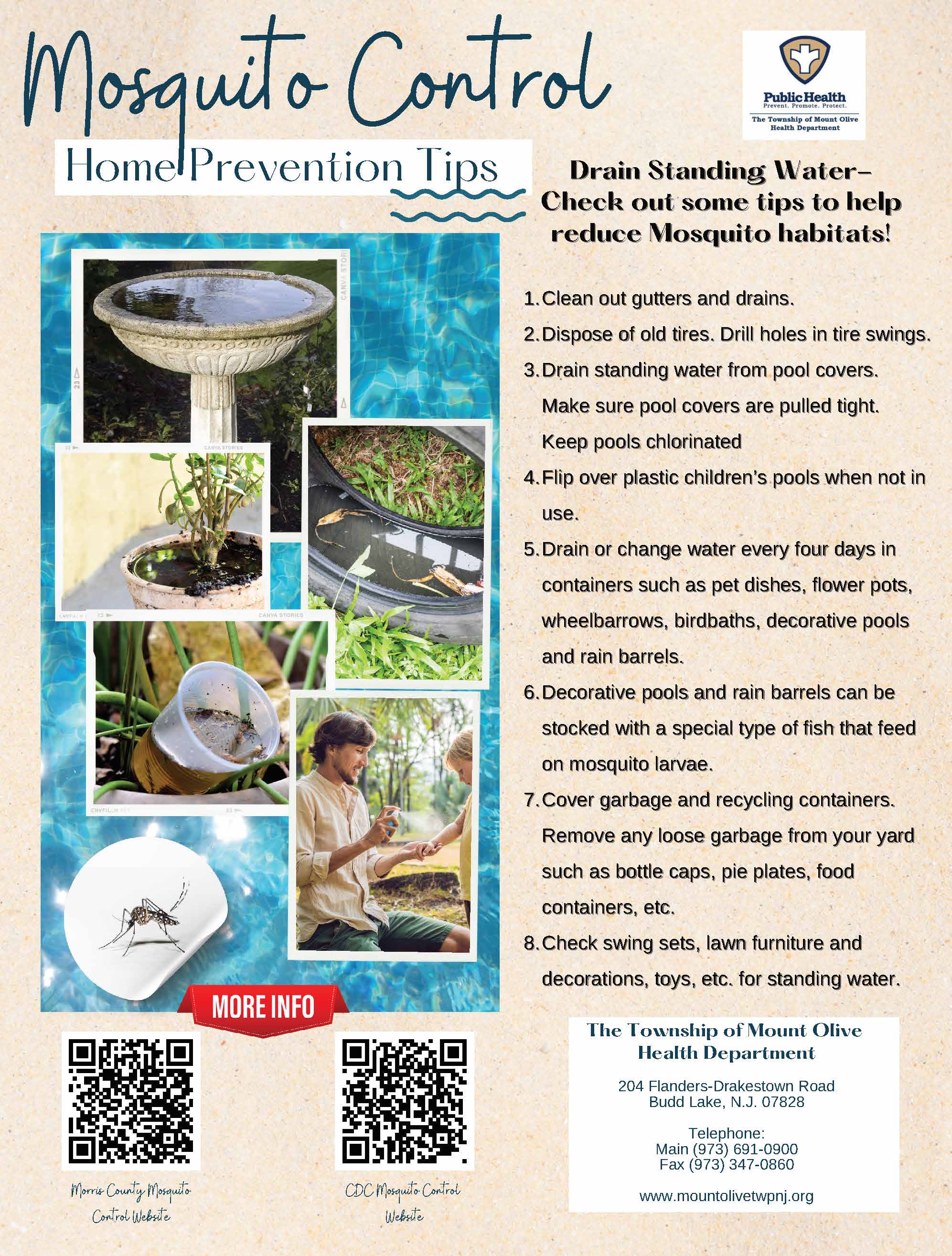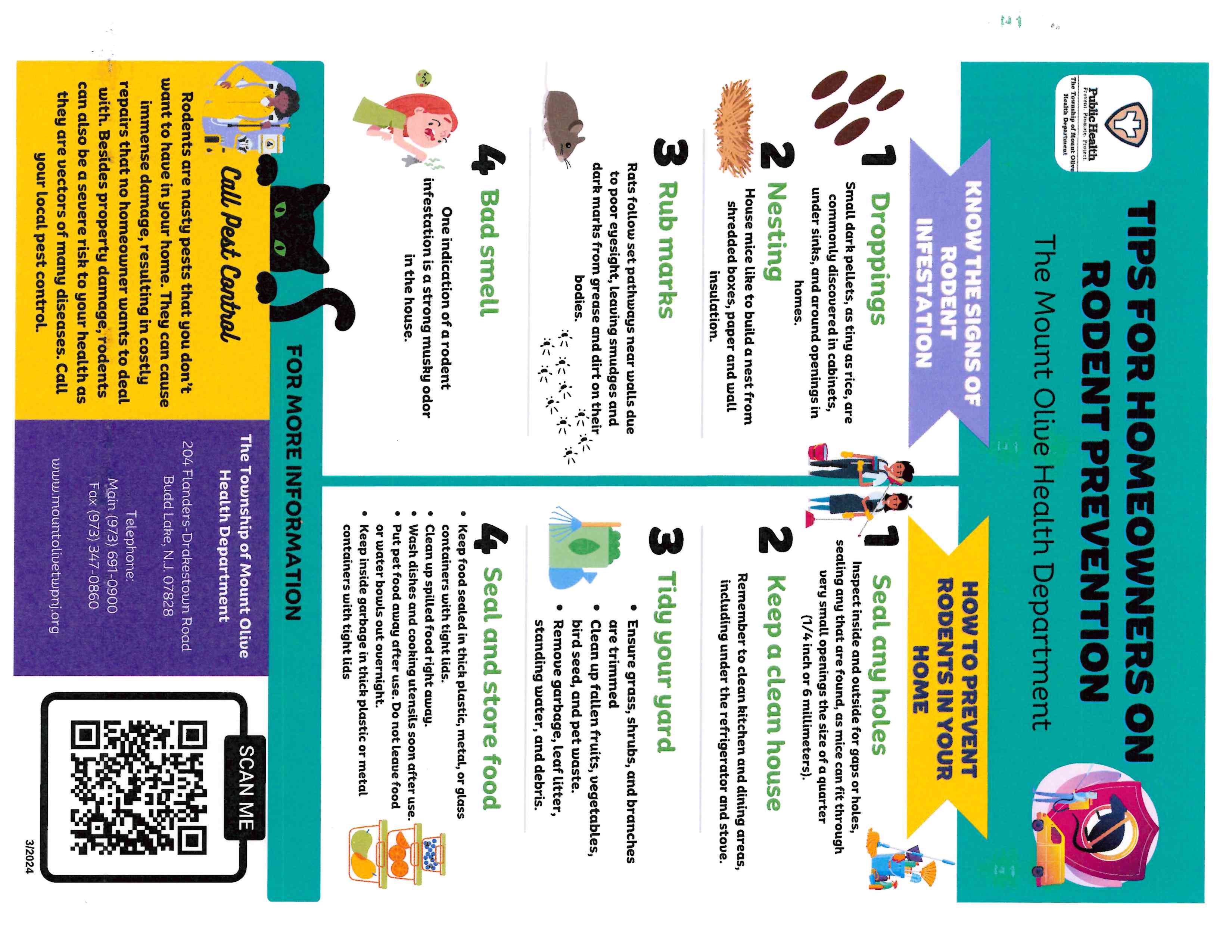Health Department
The Borough of Wharton contracts with the Township of Mt. Olive for health services except for Vital Statistics and Animal Licensing. The Borough of Wharton Health Department provides many services to the residents of Wharton at reduced rates, such as: referrals for reduced childhood immunizations, referrals for female and male cancer screenings, child health clinics, flu shots, COVID-19 vaccines for adults and children, and blood pressure screenings. The Public Health Nurse also conducts follow ups on communicable diseases and all reported animal bites. The Public Health Nurse is available for office visits for Wharton residents by appointment only. She is available to make house calls to home bound residents. Feel free to call her if you have any health-related concerns. The health department holds screenings periodically throughout the year, so check back here to see what’s coming up next.
Mt. Olive Health Department
Public Health Nurse and Registered Environmental Health Specialist
Cheryl Muzzillo
Registrar



